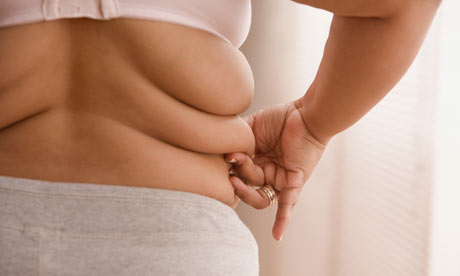|
|
|
Radschool Association Magazine - Vol 42 Page 11 |
|
Privacy Policy | Editorial Policy | Profit Policy | Join the Association | List of Members | Contact us | Index | Links |
|
Health and Life style. |
|
Back Go to page: 1 2 3 4 5 6 7 8 9 10 11 12 13 14 15 16 17 18 19 20 Forward |
|
|
|
Veterans Health. 12th February, 2013 Retired army surgeon Susan Neuhaus says veterans should have access to government-funded healthcare, without a test of eligibility.
|
|
|
|
|
|
A retired army surgeon has called on the government to fund all the medical costs of Diggers returning from Afghanistan and Iraq, regardless of whether their illnesses stemmed from their deployment.
Colonel Susan Neuhaus, who served in Afghanistan, Bougainville and Cambodia, said yesterday the current system was creating "secondary trauma".
The general surgeon and surgical oncologist, now working in Adelaide, said veterans were forced to prove their injuries were caused by their service. Veterans suffering post-traumatic stress disorder years after service might commit suicide while having their claims processed, she warned. And she urged the removal of such procedures to have an "uncontested" system akin to the "Gold Card".
The Department of Veterans' Affairs issues Gold Cards - which allows holders to have all of their medical costs covered by the government - to ex-prisoners of war, veterans with certain disability pensions and those who served in World War I and World War II.
"Let's go with 'gold-card' equivalent," Dr Neuhaus said of the proposal she made in a submission to a parliamentary inquiry into the care of defence force personnel. "It's the idea of an uncontested healthcare liability for those that have served on active duty overseas."
The increased medical costs for government would be largely offset by "huge layers of bureaucracy" being removed: "The idea that you would actually accept an uncontested liability means that not only would you potentially garner cost savings, you de-link this issue of entitlement from care. "You decrease all of the secondary trauma that goes with people, who are sick and are trying to put in claims years after the event, who have this enormous burden."
A spokesman for Veterans' Affairs Minister Warren Snowdon said the Australian Defence Force met health costs for all serving members, while those severely injured may receive a Gold Card. "For individuals who are not eligible for a Gold Card but have a service-related condition, treatment is provided for those conditions through the DVA White Repatriation Health Card or through reimbursement of costs," he said.
Opposition veterans' affairs spokesman Michael Ronaldson said he would consider the findings from the inquiry, being conducted by the joint standing committee on foreign affairs, defence and trade. "We will await the committee's report with great interest. However it is impossible from opposition to ascertain the current or future costs of such a proposal," Senator Ronaldson said.
|
|
The lady said: Needing a man is a bit like needing a parachute. If he isn't there the first time you need him, chances are you won't be needing him again.
|
|
Cold remedies: What works, what doesn't and what can't hurt.
Mayo Clinic With the onset of winter, it is time we looked at the common cold as the odds are pretty good were all going to catch one or more over the next few months. Unfortunately, there's still no cure for the common cold but what about remedies that claim to make you feel better faster?
Cold remedies are almost as common as the common cold, and many are
nearly as ancient. The use of chicken soup as a congestion cure
dates back centuries. But is longevity any guarantee that a cold
remedy works? Do effective cold remedies even exist? Here's a look
at some common cold remedies and what's known about them.
If you catch a cold, you can expect to be sick for one to two weeks. But that doesn't mean you have to be miserable. These remedies may help:
Water and other fluids. Water, juice, clear broth or warm lemon water with honey helps loosen congestion and prevents dehydration. Avoid alcohol, coffee and caffeinated sodas, which can make dehydration worse.
Salt water. A saltwater gargle 1/4 to 1/2 teaspoon salt dissolved in an 235 ml glass of warm water can temporarily relieve a sore or scratchy throat.
Saline nasal drops and sprays. Over-the-counter saline nasal drops and sprays combat stuffiness and congestion. In infants, experts recommend instilling several saline drops into one nostril, then gently suctioning that nostril with a bulb syringe. To do this, squeeze the bulb, gently place the syringe tip in the nostril about 1/4 to 1/2 inch (about 6 to 12 millimeters) and slowly release the bulb. Saline nasal sprays may be used in older children. Unlike nasal decongestants, saline drops and sprays don't lead to a rebound effect a worsening of symptoms when the medication is discontinued and most are safe and non irritating, even for children.
Chicken soup. Chicken soup might help relieve cold and flu symptoms in two ways. First, it acts as an anti-inflammatory by inhibiting the movement of neutrophils immune system cells that participate in the body's inflammatory response. Second, it temporarily speeds up the movement of mucus, possibly helping relieve congestion and limiting the amount of time viruses are in contact with the nose lining.
Over-the-counter cold and cough medications in older children and adults. Non-prescription decongestants and pain relievers offer some symptom relief, but they won't prevent a cold or shorten its duration, and most have some side effects. If used for more than a few days, they can actually make symptoms worse.
Experts agree that these medications are dangerous in children younger than age 2. The US Food and Drug Administration (FDA) is evaluating the safety of over-the-counter cold and cough medications in older children. Keep in mind that acetaminophen (Tylenol and others) can cause serious liver damage or liver failure if taken in doses higher than recommended. It's common for people to take Tylenol in addition to flu medications that may also contain acetaminophen, which can lead to acetaminophen overdoses. Read the labels of any cold medication carefully to make sure you're not overdosing.
If a cough lasts after your other cold symptoms have resolved, see your doctor. In the meantime, try soothing your throat with warm lemon water and honey and humidifying the air in your house. Don't give honey to infants.
Antihistamines.
First-generation (sedating) antihistamines may provide minor relief
of several cold symptoms,
Humidity. Cold viruses thrive in dry conditions another reason why colds are more common in winter. Dry air also dries the mucous membranes, causing a stuffy nose and scratchy throat. A humidifier can add moisture to your home, but it can also add mould, fungi and bacteria if not cleaned properly. Change the water in your humidifier daily, and clean the unit according to the manufacturer's instructions. If your infant has a cold, sitting in a steamy bathroom for a few minutes before bedtime may also help.
Cold remedies: What doesn't work.
The list of ineffective cold remedies is long. A few of the more common ones that don't work include:
Antibiotics. These attack bacteria, but they're no help against cold viruses. Avoid asking your doctor for antibiotics for a cold or using old antibiotics you have on hand. You won't get well any faster, and inappropriate use of antibiotics contributes to the serious and growing problem of antibiotic-resistant bacteria.
Over-the-counter cold and cough medications in young children. OTC cold and cough medications may cause serious and even life-threatening side effects in children. The US FDA warns against their use in children younger than age 2. The Consumer Healthcare Products Association has voluntarily modified consumer product labels on OTC cough and cold medicines to state "do not use" in children under 4 years of age, and many companies have stopped manufacturing these products for young children. The FDA is evaluating the safety of these medications in older children.
Zinc. The cold-fighting reputation of zinc has had its ups and downs. That's because many zinc studies both those that find the mineral beneficial and those that do not are flawed. The highest quality randomized trials generally show no benefit. In studies with positive results, zinc seemed most effective taken within 24 hours of the onset of symptoms. Taking zinc with food may reduce side effects, including a bad taste and nausea. Intranasal zinc may result in permanent damage to the sense of smell. The US FDA issued a warning against using three zinc-containing nasal cold remedies because they had been associated with a long-lasting or permanent loss of smell (anosmia).
Cold remedies: What probably doesn't hurt.
In spite of ongoing studies, the scientific jury is still out on some popular cold remedies, such as vitamin C and echinacea. Here's an update on some common alternative remedies:
Vitamin C.
It appears that for the most part taking vitamin C won't help the
average person prevent colds. However, taking vitamin C before the
onset of cold symptoms may shorten the duration of symptoms. Vitamin
C may provide benefit for people at high risk of colds due to
frequent exposure for example, children who attend group child
care during the winter.
Echinacea. Studies on the effectiveness of echinacea at preventing or shortening colds are mixed. Some studies show no benefit. Others show a significant reduction in the severity and duration of cold symptoms when taken in the early stages of a cold. One reason study results have been inconclusive may be that the type of echinacea plant and preparation used from one study to the next have varied considerably. Research on the role of echinacea in treating the common cold is ongoing. In the meantime, if your immune system is healthy and you aren't taking prescription medications, using echinacea supplements is unlikely to cause harm.
Take care of yourself. Although usually minor, colds can make you feel miserable. It's tempting to try the latest remedy, but the best thing you can do is take care of yourself. Rest, drink fluids and keep the air around you moist. Remember to wash your hands frequently.
What about Vicks?
Vicks VapoRub doesn't relieve nasal congestion. But the strong menthol odour of VapoRub tricks your brain. As a result, you feel like you're breathing through an unclogged nose. By contrast, decongestant tablets and nasal sprays sold over-the-counter appear to narrow blood vessels in the lining of your nose, leading to reduced swelling in your nasal passages.
VapoRub has drawbacks other than its ineffectiveness as a nasal decongestant. It's unsafe for any use in children under 2 years of age.
Swallowing a few teaspoons of camphor one of the main ingredients in VapoRub and other topical medications, such as Campho-Phenique and Bengay can cause fatal poisoning in toddlers. Topical camphor absorbed through mucous membranes or broken skin also can be toxic. That's why you should never put VapoRub in or around the nostrils particularly a small child's nostrils. Finally, if VapoRub gets in your eye, it can injure your cornea.
|
|
Middle age is the awkward period when Father Time starts catching up with Mother Nature. |
|
|
|
How to survive a heart attack when alone.
There is an email doing the rounds which tells you how to survive a heart attack if you are alone. The way to do it, it says, is to cough repeatedly
The email says:
The email then asks you to forward it to as many people as you can in order to save lives. Like a lot of these too good to be true stories doing the rounds
ITS GARBAGE!!!
There is absolutely no medical evidence that this would work and forwarding this sort of misinformation is irresponsible. Using the procedure outlined in the message in place of immediately seeking medical help could actually cost a life rather than save it.
Why are we putting on weight?
There are two factors which lead to the modern day fat explosion.
We all know about the sugar threat, but what about the demise of the cooked breakfast??
Carbohydrates are basically lots of sugar molecules joined to one other. They are generally converted to glucose which is the blood sugar. The level of blood sugar is controlled by two hormones.
The first of these is insulin which is also called the Storage
Hormone because it LOWERS blood sugar by pushing glucose into the
muscle cells to be used as energy or stored as fat In the fat cells.
Insulin STORES by lowering blood sugar and is normally active
immediately after a carbohydrate meal.
The other hormone is Glucagon. This hormone raises blood sugar by stimulating fat cells to release fat so it can be used as fuel for the muscle cells thereby saving glucose.
So to sum up, Insulin STORES and Glucagon RELEASES fat. Blind Freddy can pick the one he needs working for him if he's got a weight problem.
Unfortunately Insulin is the top gun and while it's doing its stuff Glucagon has to sit on the sideline. Typically we wake up and eat a carbohydrate breakfast and get the Insulin going. Then during the day we keep Insulin working because we consume all those carbohydrate snacks and drinks and whilst Insulin is working we are storing, storing and storing. Only at night when we are asleep does Insulin relent and allow Glucagon to have a go but by now energy needs are so low not much happens before morning when Insulin gets right back to work as soon as we eat that carbohydrate breakfast.
Now if we had a cooked high fat breakfast instead, Insulin has a sleep in because fat does not need insulin. With Insulin sleeping, Glucagon keeps working and will do so till you eat that next carbohydrate meal Any exercise you do before that Insulin releasing meal will burn loads of fat because that's the fuel the body uses when you're not eating all those carbs. This is why the cooked breakfast kept us trim. It allowed Glucagon to work.
In conclusion to lose weight there are three steps involved:
So what about eggs? It is said that eggs are about the best source of protein there is and a feed of bacon and eggs takes a lot of beating. Some say that eating eggs will cause elevated cholesterol but is this true? Others say that as your liver makes about 90% of the cholesterol in your system (as and when required), if you eat more eggs the liver will just make a bit less. You decide!!
|
|
Can you control where you lose weight?
Gerry Lyall In a word, NO!!
No matter where or what exercise you do, weight comes off where it
decides. Go for a run and you could lose it from your back. Go for a
swim and you could find that fat decides to drop from your bum or
your waist or your thighs. Likewise, if you did sit ups it won't
necessarily remove the fat from around your waist. Fat decides where
it will part with the fat from your body on its own. We don't have a
say at all
Most women will tell you that one of the first places where they lose weight is from the breasts and the last place is usually their bum. That is regardless of the type of exercise they do. Using a rowing machine will strengthen those stomach muscles and your lower back, but you might find that particular exercise won't reduce that flab from your beer gut. Our body dictates where it will lose the weight from first.
Do enough exercise and with proper eating habits you will eventually lose all your body fat. Just don't expect to start a diet and target a specific area to lose fat from. Targeting an area to burn fat from is a waste of time. Get used to it... It's just a fact of life.
|
|
Q: How do you know when a man doesn't normally do the grocery shopping? A: When the lady of the house sends him to the store with a carefully numbered list and he returns with: one bag of sugar, two dozen eggs, three loaves of bread, four boxes of detergent, five boxes of biscuits, six kg potatoes and seven bottles of milk. |
|
|
|
Aging: What to expect.
As were all getting older, apart from Pete DeJonge of course, do you wonder what getting older means, what can you expect will happen to you as you get old, and what can you do about it.
You know that aging will likely cause you to develop wrinkles and grey hair. But do you know how the aging process will affect your teeth, heart and sexuality? and what you can do to promote good health at any age.
Your cardiovascular system.
What's happening. As you age, your heart rate becomes slightly slower and your heart might become bigger. Your blood vessels and your arteries also become stiffer, causing your heart to work harder to pump blood through them. This can lead to high blood pressure (hypertension) and other cardiovascular problems.
What you can do?
Include physical activity in your daily routine. Try walking, swimming or other activities you enjoy. Regular moderate physical activity can help you maintain a healthy weight, lower blood pressure and lessen the extent of arterial stiffening. Eat a healthy diet. Choose vegetables, fruits, whole grains, high-fibre foods and lean sources of protein, such as fish. Limit foods high in saturated fat and sodium. A healthy diet can help you keep your heart and arteries healthy. Don't smoke. Smoking contributes to the hardening of your arteries and increases your blood pressure and heart rate. If you smoke or use other tobacco products, ask your doctor to help you quit. Manage stress. Stress can take a toll on your heart. Take steps to reduce stress or learn to deal with stress in healthy ways.
Your bones, joints and muscles.
What's happening.
With age, bones tend to shrink in size and density which weakens
them and makes them more susceptible to fracture. You might even
become a bit shorter. Muscles generally lose strength and
flexibility, and you might become less coordinated or have trouble
balancing.
What you can do
Get adequate amounts of calcium. For females aged 19 to 50 and men aged 51 to 70, the US Institute of Medicine recommends 1,000 milligrams (mg) of calcium a day. The recommendation increases to 1,200 mg a day for women age 51 and older and men age 71 and older. Dietary sources of calcium include dairy products, almonds, broccoli, canned salmon with bones, sardines and soy products, such as tofu. If you find it difficult to get enough calcium from your diet, ask your doctor about calcium supplements.
Get adequate amounts of vitamin D. For adults ages 19 to 70, the Institute of Medicine recommends 600 international units (IU) of vitamin D a day. The recommendation increases to 800 IU a day for adults age 71 and older. Although many people get adequate amounts of vitamin D from sunlight, this might not be a good source for everyone. Other sources of vitamin D include oily fish, such as tuna and sardines, egg yolks, fortified milk, and vitamin D supplements.
Include physical activity in your daily routine. Weight-bearing exercises, such as walking, jogging, tennis and climbing stairs, and strength training can help you build strong bones and slow bone loss.
Avoid substance abuse. Avoid smoking and don't drink more than two alcoholic drinks a day.
Your digestive system
What's happening Constipation is more common in older adults. Many factors can contribute to constipation, including a low-fibre diet, not drinking enough fluids and lack of exercise. Medications such as diuretics and iron supplements and certain medical conditions such as diabetes and irritable bowel syndrome also might contribute to constipation.
What you can do
Eat a healthy diet. Make sure your diet includes high-fibre foods, such as fruits, vegetables and whole grains. Limit meats that are high in fat, dairy products and sweets, which might cause constipation. Drink plenty of water and other fluids.
Include physical activity in your daily routine. Regular physical activity can help prevent constipation and is important for your overall health.
Don't ignore the urge to have a bowel movement. Holding in a bowel movement for too long can cause constipation.
Your bladder and urinary tract.
What's happening. Loss of bladder control (urinary incontinence) is common with aging. Medical conditions, such as diabetes, might contribute to incontinence as can menopause, for women, and an enlarged prostate, for men.
What you can do
Go to the toilet regularly. Consider urinating on a regular schedule, such as every hour. Slowly, extend the amount of time between your toilet trips.
Maintain a healthy weight. If you're overweight, lose excess kilos.
Don't smoke. If you smoke or use other tobacco products, ask your doctor to help you quit.
Do Kegel exercises. Tighten your pelvic floor muscles, hold the contraction for five seconds, and then relax for five seconds. Try it four or five times in a row. Work up to keeping the muscles contracted for 10 seconds at a time, relaxing for 10 seconds between contractions.
Your memory.
What's happening Memory tends to becomes less efficient with age. It might take longer to learn new things or remember familiar words or names.
What you can do.
Eat a healthy diet. A heart healthy diet might benefit your brain. Focus on fruits, vegetables and whole grains. Choose low-fat protein sources, such as fish, lean meat and skinless poultry. What you drink counts, too. Too much alcohol can lead to confusion and memory loss.
Include physical activity in your daily routine. Physical activity increases blood flow to your whole body, including your brain. This might help keep your memory sharp.
Stay mentally active. Mentally stimulating activities help keep your brain in shape and might keep memory loss at bay. Do crossword puzzles. Take up a hobby.
Be social. Social interaction helps ward off depression and stress, which can contribute to memory loss. Look for opportunities to get together with loved ones, friends and others. If you're concerned about memory loss, consult your doctor.
Your eyes and ears
What's happening. With age, you might have difficulty focusing on objects that are close up. You might become more sensitive to glare and have trouble adapting to different levels of light. Aging also can affect your eye's lens, causing clouded vision (cataracts). Your hearing also might dim. You might have difficulty hearing high frequencies or following a conversation in a crowded room.
What you can do
Schedule regular checkups. Follow your doctor's advice about glasses, contact lenses, hearing aids and other corrective devices.
Take precautions. Wear sunglasses or a wide-brimmed hat when you're outdoors, and use earplugs when you're around loud machinery or other loud noises.
Your teeth
What's happening Your gums might pull back (recede) from your teeth. Certain medications, such as those that treat allergies, asthma, high blood pressure and high cholesterol, can also cause dry mouth. As a result, your teeth and gums might become slightly more vulnerable to decay and infection.
What you can do
Brush and floss. Brush your teeth twice a day and clean between your teeth using regular dental floss or an interdental cleaner once a day.
Schedule regular checkups. Visit your dentist or dental hygienist for regular dental checkups.
Your skin
What's happening. With age, your skin thins and becomes less elastic and more fragile. You might notice that you bruise more easily. Decreased production of natural oils might make your skin drier. Wrinkles, age spots and small growths called skin tags are more common.
What you can do
Be gentle. Bathe in warm not hot water. Use mild soap and moisturizer.
Take precautions. When you're outdoors, use sunscreen and wear protective clothing. Check your skin regularly and report changes to your doctor.
Don't smoke. If you smoke or use other tobacco products, ask your doctor to help you quit. Smoking contributes to skin damage, such as wrinkling.
Your weight.
What's happening. Maintaining a healthy weight is more difficult as you get older. As you get older, your muscle mass decreases and body fat takes its place. Since fat tissue burns fewer calories than does muscle, you need fewer calories to maintain your current weight.
What you can do
Include physical activity in your daily routine. Regular moderate physical activity can help you maintain a healthy weight.
Eat a healthy diet. Choose vegetables, fruits, whole grains, high-fibre foods and lean sources of protein, such as fish. Limit sugar and foods high in saturated fat.
Watch your portion sizes. You might not need as many calories as you used to.
Your sexuality
What's happening With age, sexual needs, patterns and performance might change. Illness or medication might affect your ability to enjoy sex. For women, vaginal dryness can make sex uncomfortable. For men, impotence might become a concern. It might take longer to get an erection, and erections might not be as firm as they used to be.
What you can do
Share your needs and concerns with your partner. You might experiment with different positions or sexual activities.
Talk to your doctor. He or she might offer specific treatment suggestions such as estrogen cream for vaginal dryness or oral medication for erectile dysfunction. Remember, it's never too late to adopt a healthy lifestyle. You can't stop the aging process, but you might be able to minimize its impact by making healthy choices.
|
|
Finding a woman sobbing that she had locked her keys in her car, a passing soldier assures her that he can help. She looks on amazed as he removes his trousers, rolls them into a tight ball and rubs them against the car door. Magically, it opens. "That's so clever," the woman gasps. "How did you do it?" "Easy," replies the soldier. "These are my khakis."
|
|
|
|
Back Go to page: 1 2 3 4 5 6 7 8 9 10 11 12 13 14 15 16 17 18 19 20 Forward |
|
|





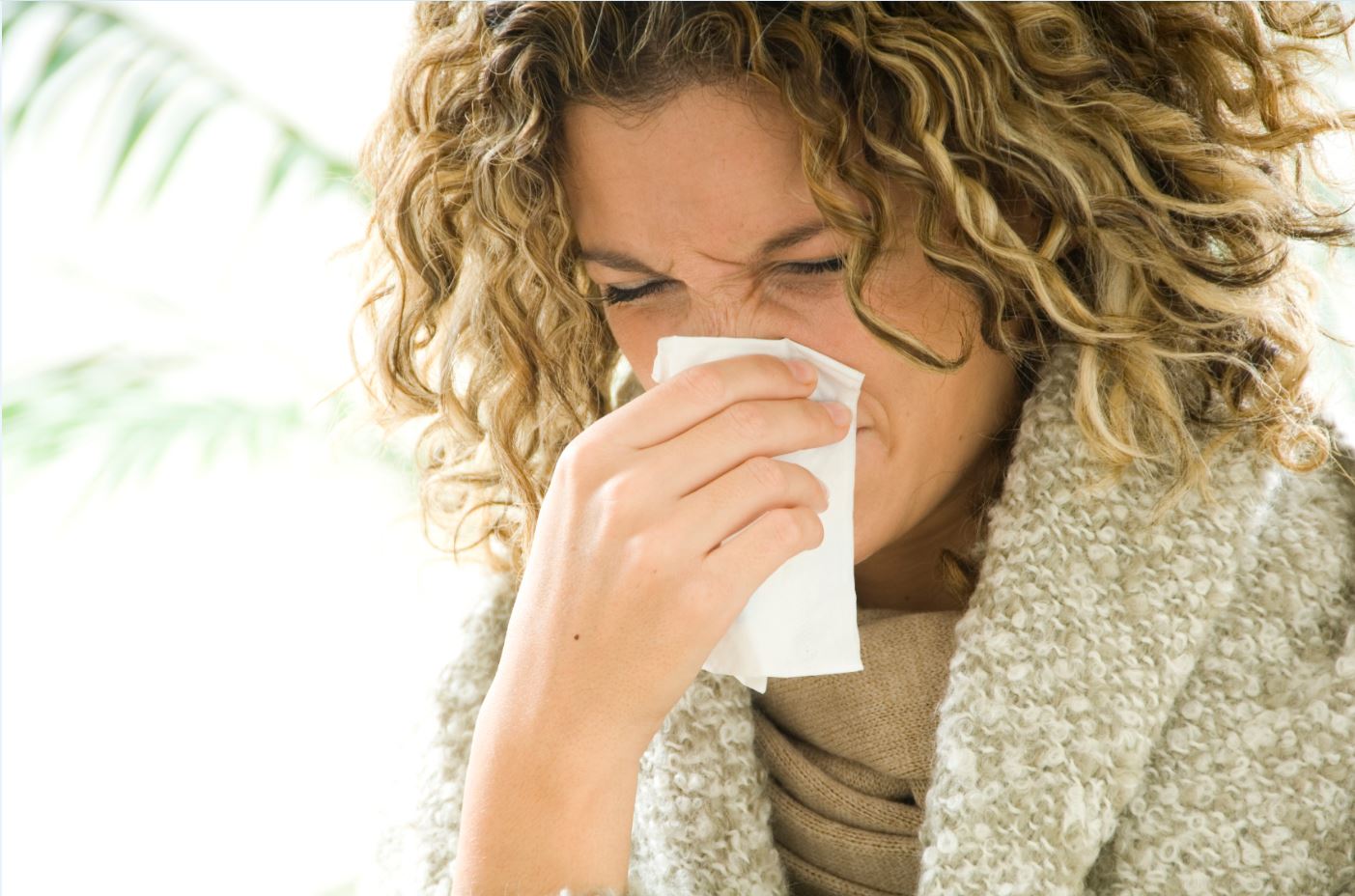 including cough, sneezing, watery eyes and
nasal discharge. However, results are conflicting and the benefits
may not outweigh the side effects.
including cough, sneezing, watery eyes and
nasal discharge. However, results are conflicting and the benefits
may not outweigh the side effects. 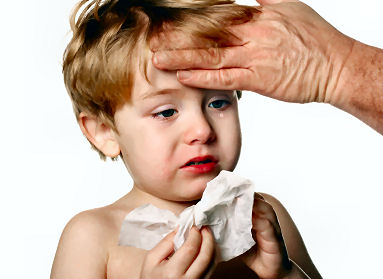
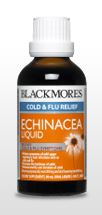
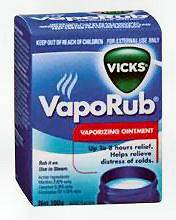
 consciousness. However, these victims can help themselves by
coughing repeatedly and very vigorously. A deep breath should be
taken before each cough, and the cough must be deep and prolonged,
as when producing sputum from deep inside the chest.
consciousness. However, these victims can help themselves by
coughing repeatedly and very vigorously. A deep breath should be
taken before each cough, and the cough must be deep and prolonged,
as when producing sputum from deep inside the chest.